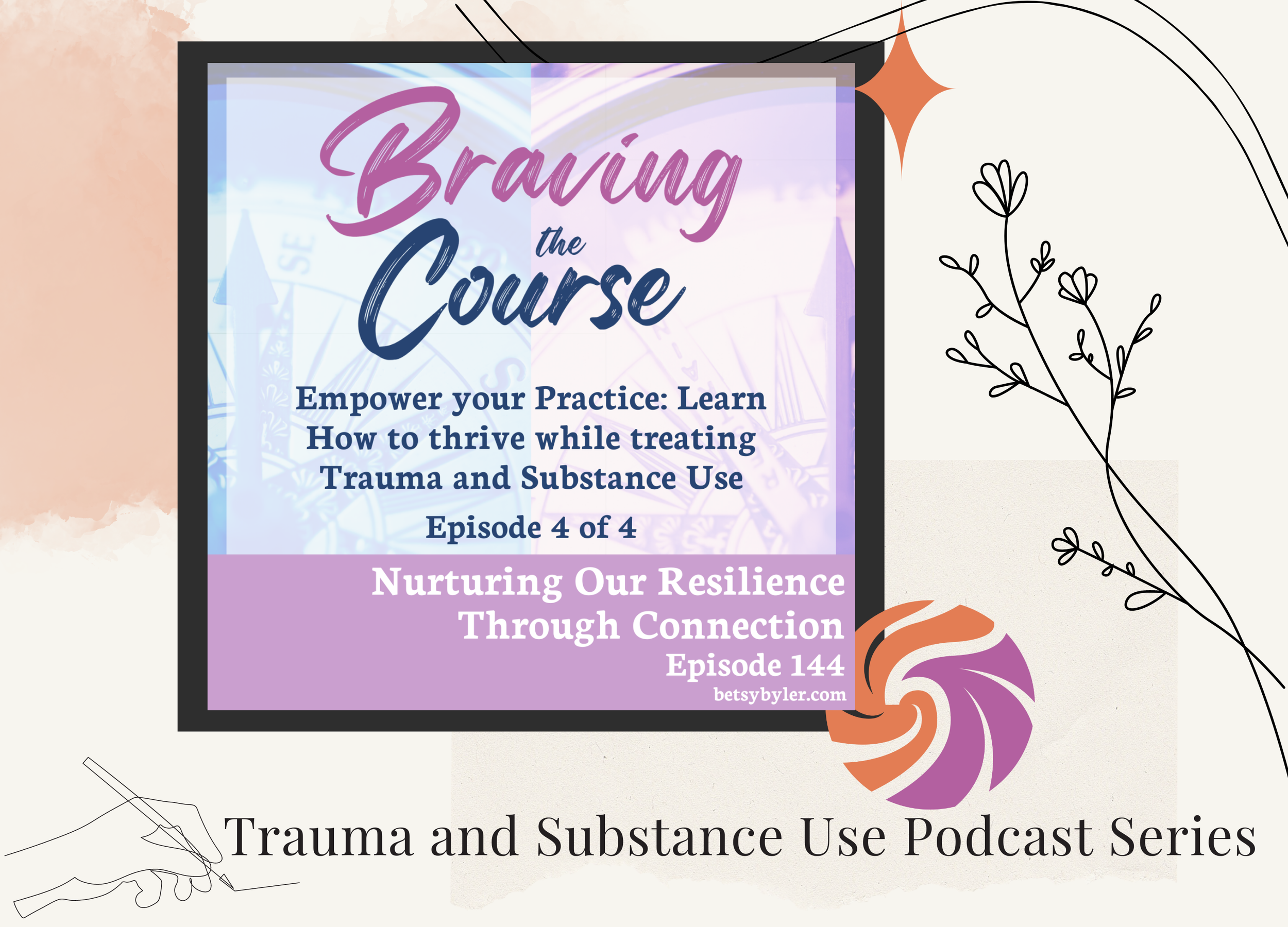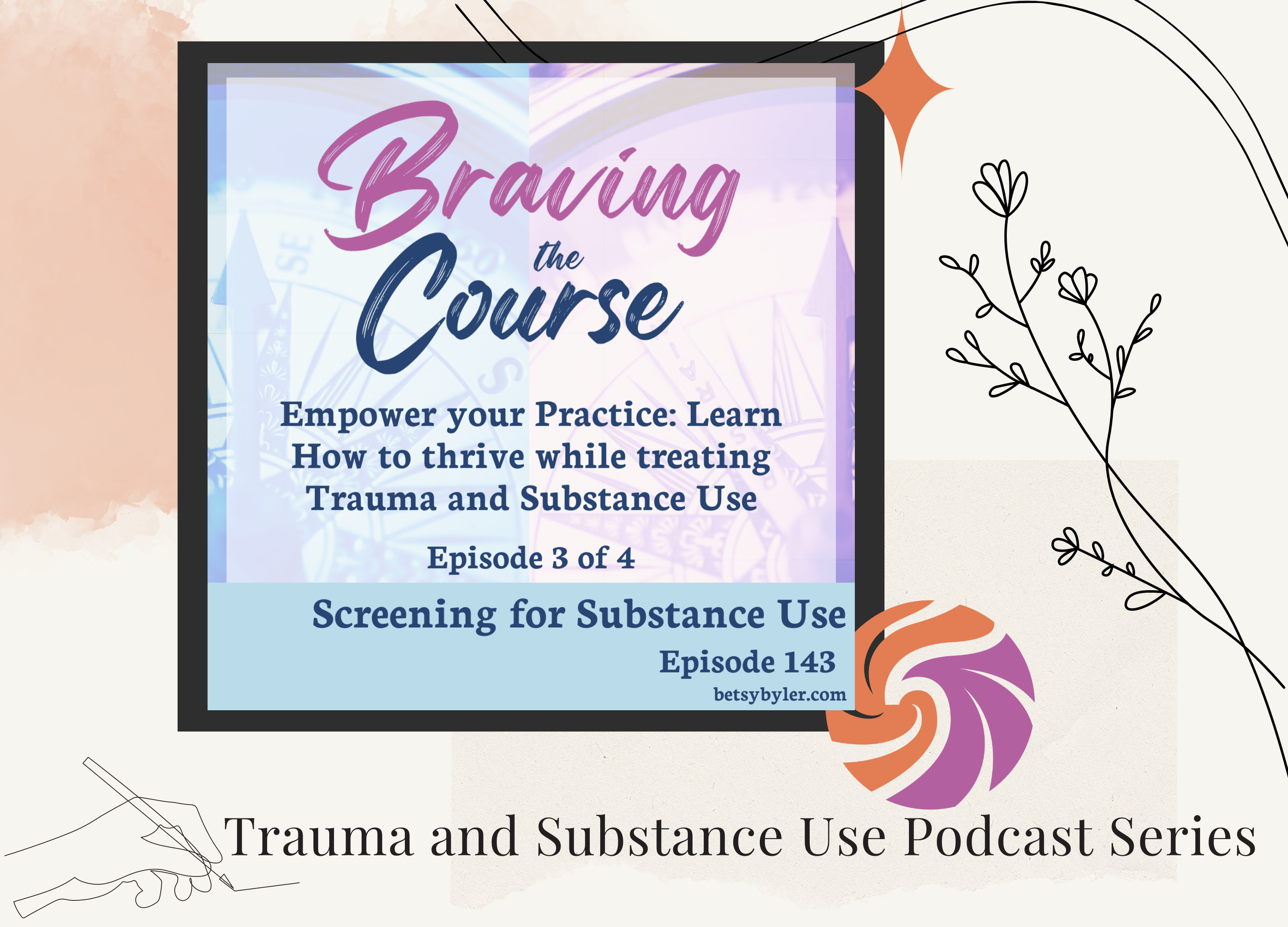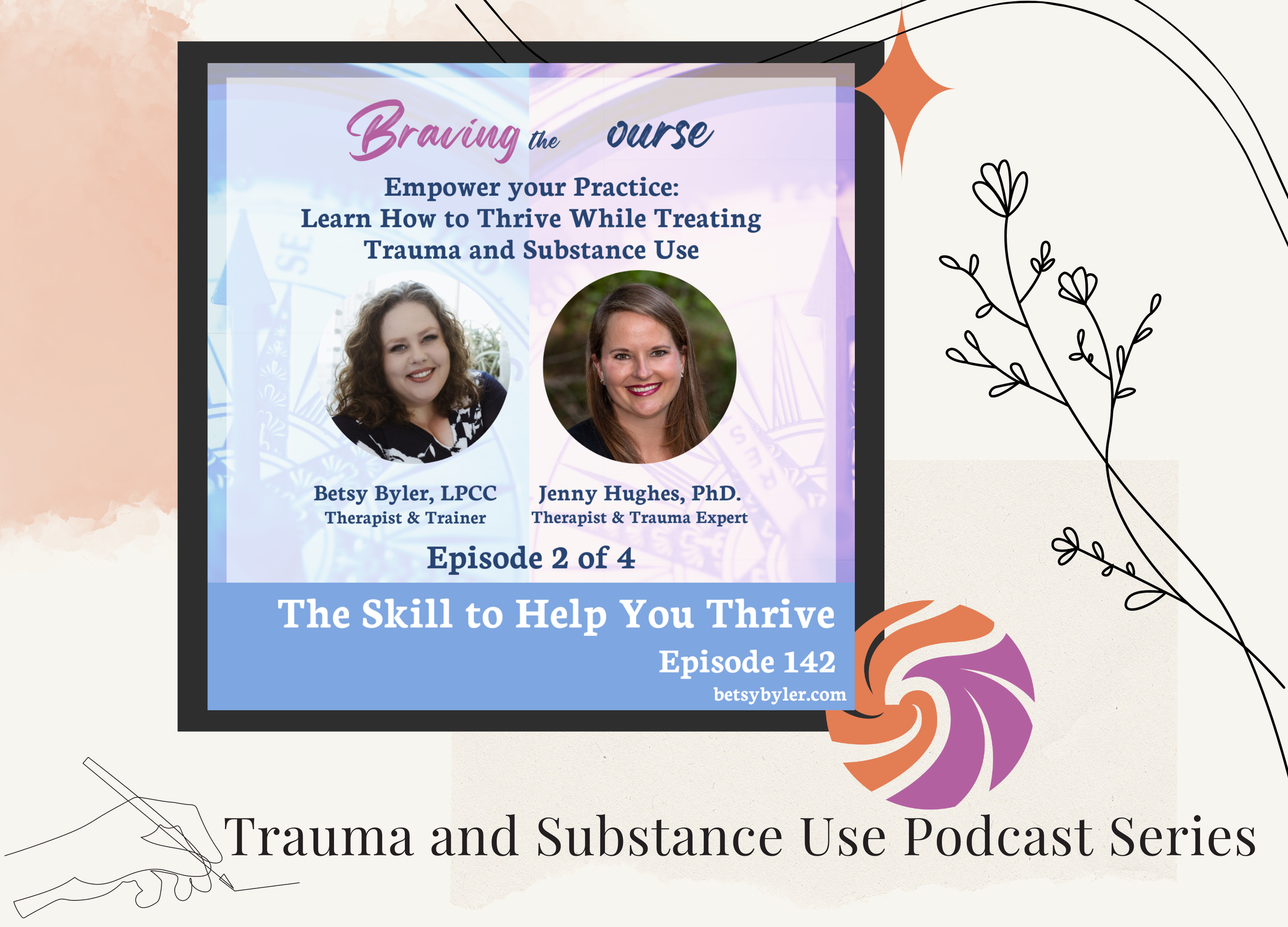Finding Healing Within: Preventing Burnout and Thriving as a Trauma Therapist
You are no stranger to the emotional toll trauma work can take on you. Of course you’re committed to helping others, and as you do that, it's crucial to be aware of the challenges you face so you can prevent burnout and thrive in the work you love.
Nurturing Resilience: Finding Support in Addressing Substance Use as a Trauma Therapist
As trauma therapists, it's not always easy to hear the stories of pain and suffering day in and day out. And yet, we chose this path for a reason. Despite our passion, burnout and secondary traumatic stress are very real risks but finding supportive communities brings us closer to the joy we find in our work and the gift of vicarious resilience.
Breaking the Ice: Asking About Substance Use in Trauma Therapy
As trauma therapists, we understand the complex relationship between trauma and substance use. And yet, if you’re like me, you hesitate to ask about substance use if it’s not obviously a problem. Read how Betsy shares her immense wisdom about bringing up problematic substance use in empathic and non-judgmental ways.
Charting a Course to Resilience: Empowering Trauma Therapists in Substance Use Work
Our work is heavy, and when we choose to address the common co-occurrence of substance use, it can feel like that weight will crush us. Fortunately, there is so much we can do to thrive in this work when we find a balance between our own vulnerability and strength.
Navigating Substance Use in Trauma Therapy: A Compassionate Approach
Substance use is a complex and sensitive topic that often intersects with trauma therapy. By approaching this intersection with empathy, understanding, and a harm reduction mindset, we can help our clients navigate towards their goals while fostering growth, healing, and resilience.
Unveiling Vicarious Trauma with the Johari Window
The Johari Window is about self-awareness but this week you’ll see how my brain has worked to adapt this age-old technique to help you Name Vicarious Trauma and share these experiences with the people who mean the most to you.
Trauma Therapists Deserve to be Cared For Together
Despite the passion you have for this work, there's an inner voice that often goes unheard — your own. It's time to shatter the silence and acknowledge a truth: trauma therapists deserve to be cared for too.
Being a Trauma Therapist is Hard - Why Keep Doing it?
We both know there is a deeper reason you keep doing this work. For me, it's because I really do see people get better.
What’s your reason?
Self-Care is a Privilege, NOT an Entitlement, for Trauma Therapists
If you're anything like me, you loathe the term Self-Care and yet you’re told almost every day that you need it, you should be doing it, and deep down you do know that it’s necessary.
The Gift of Vicarious Resilience in Supervision
Supervision is a sacred space with trainees.
Of course, the main goal is to process cases and strengthen clinical skills, but supervision is so much more than reporting updates and being told what to do next. It is an opportunity for Vicarious Resilience.
From Blind Spots to Clarity: How Naming Vicarious Trauma Connects Us to our *Why*
It’s no surprise that I think all trauma therapists should name our vicarious trauma on the regular. And, if you're anything like me, you're very happy to ignore VT and burnout signs!
To get myself out, or even to prevent spiraling, I realized that I needed a better reason to check in with my VT on the regular.
Beyond Self-Care: Healing Your Heart While Healing Others as a Trauma Therapist
As a trauma therapist, you do such important work.
I know you love your specialty, I do too! But we can’t ignore the heavy emotional toll it takes on us. Let’s also not pretend that all the talk about “just practice self-care” doesn’t get to you.
Overcoming Vicarious Trauma: How Diversifying My Income Saved My Practice and My Sanity
As trauma therapists, we do profound work with our clients. This is inspiring and heavy.
Did you know diversifying your income could help reduce the burden of vicarious trauma in your life?
From Badass to BRAVE: How to SAFELY Take Off your Trauma Therapist Armor
The #1 thing trauma therapists say to me when I encourage them to remove their professional armor is, “So then how am I supposed to protect myself?!”
My response? “Maybe you don’t need to be protected!”
Hey Trauma Therapist! Be Human, Not Armored
I know what you're thinking: "I'm a trauma therapist, I do serious work and have to be a blank slate!" What if I told you that armoring up with all your training and education is setting you up for vicarious trauma?















